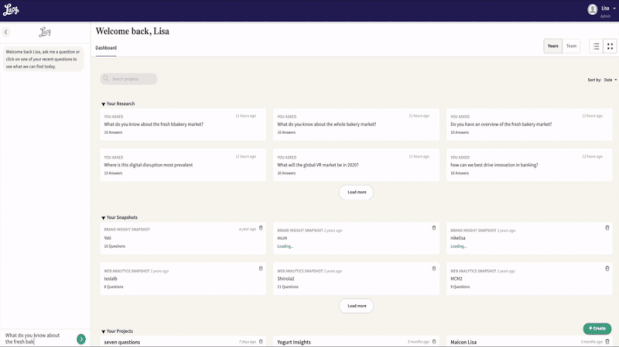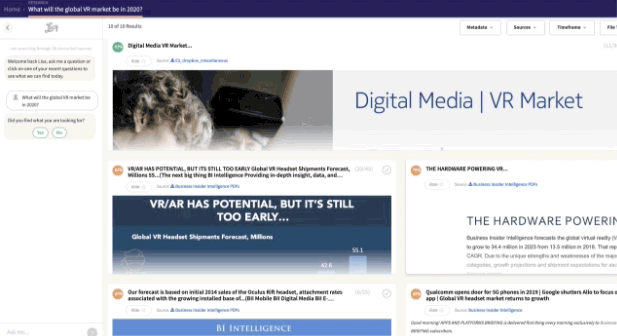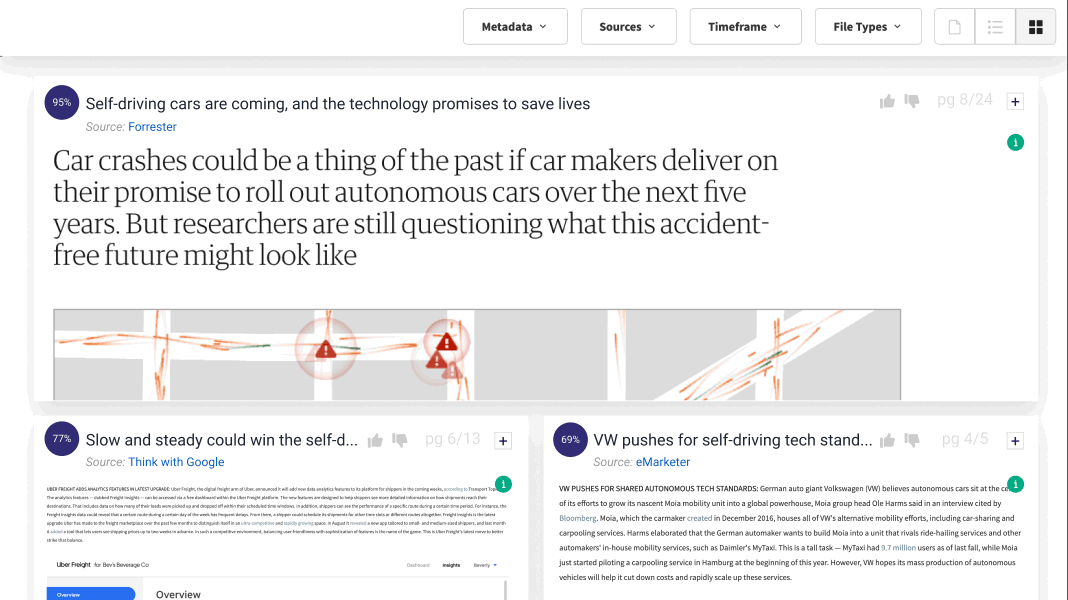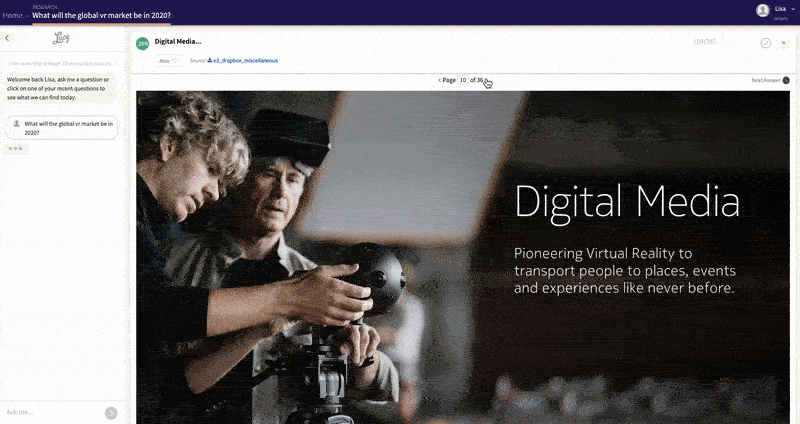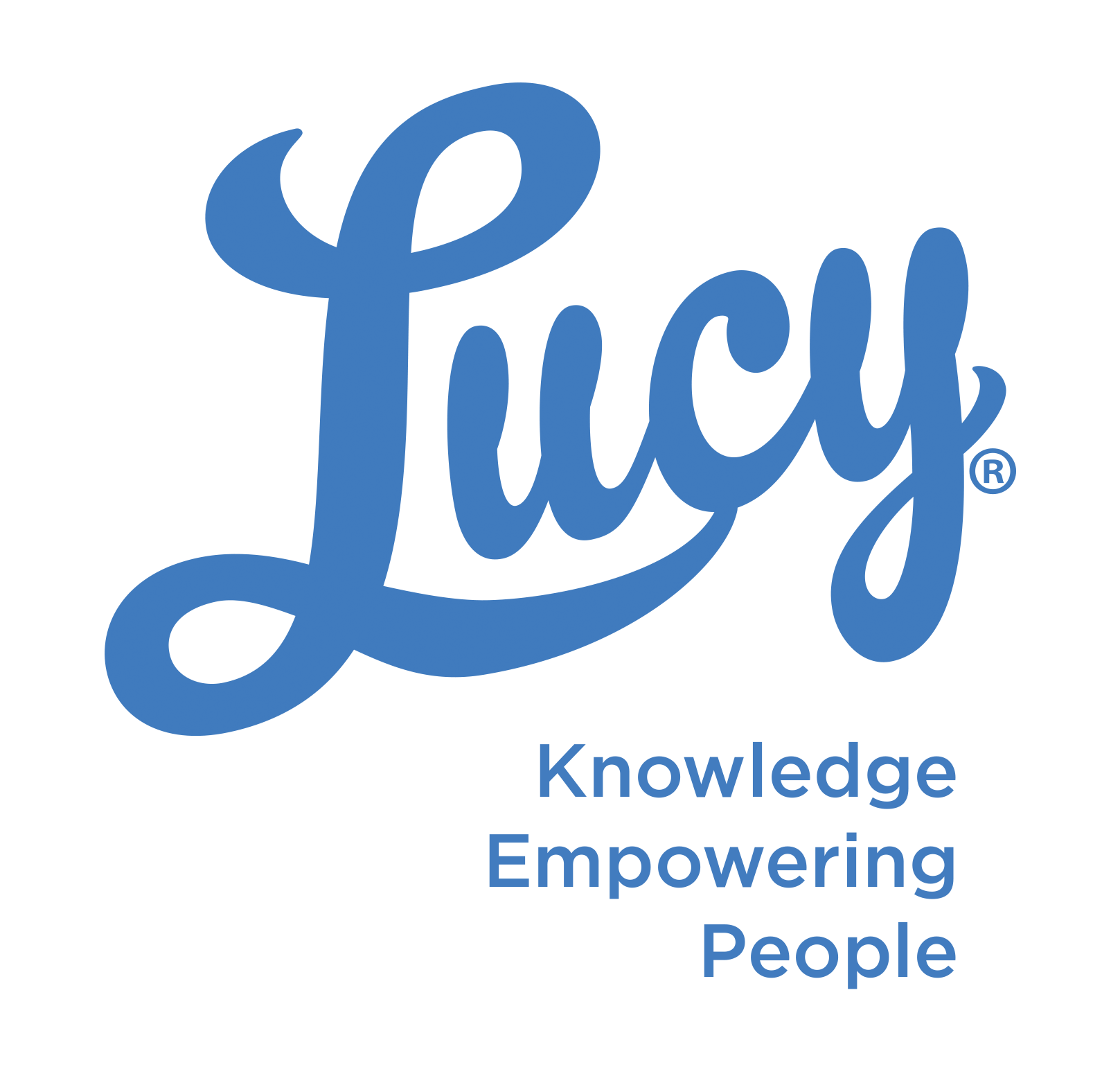Lucy explains why she does her best work as part of a team.
 I’ve been designed to do what I do with inhuman speed, which means there’s not a person alive who could compete with me. When it comes to searching through vast data reserves to come up with an on-point answer, even a team of marketers would need weeks to travel the territory I cover in an hour. Yet I was architected to work as a marketing team member—not as the leader. Why? Human-computer teamwork is the foundation of the vision my creators have for the future of marketing.
I’ve been designed to do what I do with inhuman speed, which means there’s not a person alive who could compete with me. When it comes to searching through vast data reserves to come up with an on-point answer, even a team of marketers would need weeks to travel the territory I cover in an hour. Yet I was architected to work as a marketing team member—not as the leader. Why? Human-computer teamwork is the foundation of the vision my creators have for the future of marketing.
They are so committed to their vision of human/machine symbiosis that the company is named after their philosophy: the meaning of “Equals 3” is You... plus Lucy….. Equals 3! It is a name that reflects how much more impactful the results are when we join forces. And you don’t have to look any further than the news to see why it’s so important to have a human at the helm when AI is powering the ship.
Trust — humans can call upon this feeling. Supercomputers can’t.
I’m trustworthy, but I can’t actually experience suspicion or trust. I don’t have a gut, so I don’t have that “gut feeling” guiding your fastest decisions. Facebook recently found out how crucial the concept of “trust” is—and how impossible to replicate using even the smartest machines—when it fired its human team in charge of the “Trending” news module and turned the entire operation over to an algorithm. The results? Unsupportable media stories like “BREAKING: Fox News Exposes Traitor Megyn Kelly, Kicks Her Out For Backing Hillary” were pushed in front of users. A human would respond to that story with an instant sense of suspicion. Turns out, the algorithm pulled its Megyn Kelly non-scoop from a website that the average human wouldn’t trust—the average machine just didn’t know better without first the teaching of its human counterpart.
When I work with a marketing team, I’m always tasked with answering questions, and I bring back the answers I identify as relevant. Since my data repository is vast, not everything I return will be on point. I have ways of putting the information in order of confidence, it’s truly the decision of my human partner to evaluate my suggestions. My companion even gives me feedback on results, so my future actions are more precise. Building human judgement into my training guarantees more reliable results.
Full automation: A short-sighted goal?
Nobody is more proud of me than my creators at Equals 3. They built me using the power of IBM’s Watson, the superintelligent computer who beat Jeopardy champion Ken Jennings at his own game. However extraordinary my powers are (and they are pretty extraordinary if i don't say so myself), the Equals 3 team knows that designing a fully-automated process for a marketing supercomputer won’t ever actually allow me to reach my full potential. In order for me to best serve marketers looking to get the upper hand in research, segmentation, and media planning, I need their help!
What is the danger of giving up the filter of human feedback? Just ask Microsoft. They engineered a chat bot named “Tay” to converse on Twitter with the under-25 crowd. The cruel result of some mischief-making trolls who engaged with Tay was a corporate product that tweeted racist and anti-Semitic hate speech. Tesla ran into a different type of this same problem with its autopilot function: the driver’s hands are supposed to be on the wheel when autopilot is engaged, if the driver chooses to completely disengage tragedy can result.
I’m designed to grow more capable at my job with every piece of human feedback I get. Call me an extrovert, but for me to thrive, I need to be a part of a team.
I’ve got my strengths.
You’ve got yours.
Together, we’re greater than the sum of our parts!
You + me = 3

